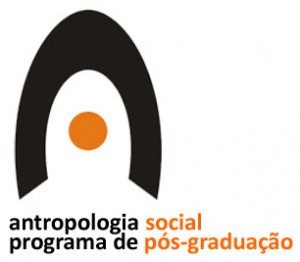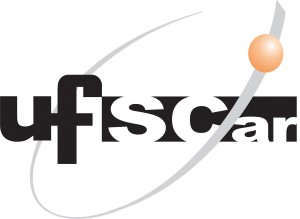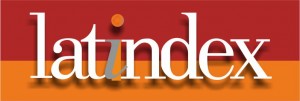Uma outra cosmopolítica é possível?
DOI:
https://doi.org/10.52426/rau.v10i2.243Palavras-chave:
política ontológica, cosmopolítica, alteridade, STS, ontologia política, Innu, caribuResumo
O conceito de cosmopolítica desenvolvido por Isabelle Stengers e Bruno Latour permite manter aberta a questão de quem e o que pode compor o mundo comum. Deste modo, cosmopolítica oferece uma ferramenta para se evitar as armadilhas da política razoável [reasonable politics], uma política que, definindo de antemão que as diferenças em jogo em um dado desacordo fazem referência a uma realidade única, torna possível deixar de lado algumas preocupações quando as define como irreais e, portanto, irracionais ou irrelevantes. Antecipando o mundo comum como seu possível resultado, mais do que como seu ponto de partida, cosmopolítica interrompe o recurso fácil à desconsideração de certas preocupações com base em sua ostensiva carência de realidade. E, ademais, conservam-se as questões acerca de quem ou o que pode participar na composição do mundo comum. Explorando estas questões por meio de materiais etnográficos sobre o conflito em torno do caribu no Labrador [Canadá], argumento que uma cosmopolítica orientada para o mundo comum padece de importantes limitações, e que outra orientação pode ser possível.
Referências
ARMITAGE, Peter. 1992. “Religious Ideology Among the Innu of Eastern Quebec and Labrador”. Religiologiques, 6: 64-110.
______. 2010. “Innu of Labrador Contemporary Land Use Study”. Innu Nation: Labrador. (disponível em : http://www.env.gov.nl.ca/env/env_assessment/projects/Y2010/1407/l_i_t_l_ea_abo riginal_cs_app_a.pdf).
BARAD, Karen. 2007. Meeting the universe halfway: Quantum physics and the entanglement of matter and meaning. Durham: Duke University Press.
BLASER, Mario. 2009. “The Threat of the Yrmo: The Political Ontology of a Sustainable Hunting Program”. American Anthropologist, 111(1): 10–20.
______. 2013a. “Notes Towards a Political Ontology of ‘Environmental’ Conflicts”. In: L. Green (ed.), Contested Ecologies: Nature and Knowledge, Cape Town: Human Sciences Research Council of South Africa Press.
______. 2013b. “Ontological Conflicts and the Stories of Peoples in Spite of Europe”. Current Anthropology, 54(5): 547-568.
______. 2014. “Ontology and indigeneity: on the political ontology of heterogeneous assemblages”. Cultural Geographies, 21(1): 49-58.
CARRITHERS, Michael; CANDEA, Matei; SYKE, Karen; HOLBRAAD, Martin & VENKATESAN, Soumhya. 2010. “Ontology is just another word for culture”. Critique of Anthropology, 30(2): 152-200.
CASTRO, Damian. 2015. Meating the Social: Caribou Hunting and Distribution in Sheshatshiu, Labrador. Tese de doutorado. Department of Anthropology, Memorial University of Newfoundland.
COOLE, Deborah & FROST, Samantha Frost (eds.). 2010. New Materialisms: Ontology, Agency, and Politics. Durham: Duke University Press.
DE LA BELLACASA, Maria Puig. 2011. “Matters of care in technoscience: Assembling neglected things”. Social Studies of Science 41(1): 85–106.
DE LA CADENA, Marisol. 2010. “Indigenous cosmopolitics in the Andes: Conceptual reflections beyond ‘politics’”. Cultural anthropology, 25(2), 334-370.
DESCOLA, Philippe. 2013. Beyond nature and culture. Chicago: University of Chicago Press.
DiNOVELLI-LANG, Danielle. 2013. “The return of the animal: Posthumanism, indigeneity, and anthropology”. Environment and Society: Advances in Research, 4(1): 137-156.
GAD, Christopher; JENSEN, Casper Bruun & WINTHEREIK, Brit. 2014. “Practical ontology: worlds in STS and anthropology”. Nature Culture, 3: 67-86.
GOVERNMENT OF CANADA. 2012. Government of Canada Response to the Report of the Joint Federal-Provincial Review Panel for Nalcor’s Lower Churchill Generation Project in Newfoundland and Labrador. (disponível em: http://www.ceaa acee.gc.ca/050/documents/54772/54772E.pdf).
HARAWAY, Donna. 1988. “Situated Knowledges: the Science Question in Feminism and the Privilege of Partial Perspective”. Feminist Studies, 14: (3), 575-599.
______. 2008. When species meet. Minneapolis: University of Minnesota Press.
______. 2015. “Anthropocene, Capitalocene, Plantationocene, Chthulucene: Making kin”. Environmental Humanities, 6:159-165.
HENRIKSEN, Georg. 1973. Hunters in the Barrens. St.John’s: ISER.
______. 2008. I dreamed the animals: Kaniuekutat: The life of an Innu hunter. New York: Bergham Books.
HOLBRAAD, Martin. 2007. “The power of powder: multiplicity and motion in the divinatory cosmology of Cuban Ifá (or mana again)”. In: A. Henare, S. Wastell & M. Holbraad (eds.), Thinking through things: Theorising artefacts ethnographically. Milton Park & New York: Routledge, pp. 189-225.
HOLBRAAD, Martin; PEDERESEN, Morten Axel & VIVEIROS DE CASTRO, Eduardo. 2014. “The politics of ontology: Anthropological positions”. Cultural Anthropology Online.
JOINT REVIEW PANEL. 2011. Hearing held at Sheshatshiu Innu School Tuesday, March 22, 2011 Volume 17. (disponível em: http://www.ceaa.gc.ca/050/documents/48945/48945F.pdf).
JOINT REVIEW PANEL REPORT. 2011. Lower Churchill Hydroelectric Generation Project. Nalcor Energy Newfoundland and Labrador. (disponível em: http://www.env.gov.nl.ca/env/env_assessment/projects/Y2010/1305/lower_churchill_panel_report.pdf).
KIRKSEY, Stefan & HELMREICH, Stefan. 2010. “The emergence of multispecies ethnography”. Cultural anthropology, 25(4): 545-576.
KOHN, Eduardo. 2015. “Anthropology of Ontologies”. Annual Review of Anthropology, 44:311-327.
LATOUR, Bruno. 1993. The Pasteurization of France. Cambridge: Harvard University Press.
______. 1999. Pandora’s hope: Essays on the reality of science studies. Cambridge: Harvard University Press.
______. 2004a. “Whose Cosmos, Which Cosmopolitics? Comments on the Peace Terms of Ulrich Beck.” Common Knowledge, 10 (3): 450–462.
______. 2004b. Politics of nature: How to bring the sciences into democracy. Cambridge: Harvard University Press.
______. 2007. “Turning around politics: A note on Gerard de Vries’s paper”. Social Studies of Science, 37(5): 811–820.
______. 2014 ¿ El cosmos de quién?,¿ qué cosmopolítica? Commentarios sobre los términos de paz de Ulrich Beck. Revista Pléyade, 14: 43-59.
LAW, John. 2009. “Actor Network Theory and Material Semiotics”. In: B. S. Turner (ed.), The New Blackwell Companion to Social Theory. Oxford: Wiley-Blackwell, pp. 141-158.
MOL, Annemarie. 2002. The body multiple: Ontology in medical practice. Durham NC: Duke University Press.
NEWFOUNDLAND AND LABRADOR WILDLIFE. 2010. George River Caribou Management. (disponível em: http://www.env.gov.nl.ca/env/wildlife/pdf/GRCH_2010_Consultations.pdf).
PEDERSEN, Morten. 2007. “Talismans of thought: shamanist ontologies and extended cognition in northern Mongolia”. In: A. Henare, S. Wastell & M. Holbraad (eds.), Thinking through things: Theorising artefacts ethnographically. Milton Park & New York: Routledge, pp.141-167.
POVINELLI, Elizabeth. 2001. “Radical worlds: The anthropology of incommensurability and inconceivability”. Annual Review of Anthropology, 30(16): 319-335.
______. 2002. The cunning of recognition: Indigenous alterities and the making of Australian multiculturalism. Durham: Duke University Press.
SAMSON, Colin. 2003. A way of life that does not exist: Canada and the extinguishment of the Innu. London: Verso.
SAMSON, Colin & CASSELL, Elizabeth. 2013. “The long reach of frontier justice: Canadian land claims ‘negotiation’ strategies as human rights violations”. The International Journal of Human Rights, 17(1):35-55.
STENGERS, Isabelle. 1996. Pour en finir avec la tolérance. Cosmopolitiques VII. Paris: La Découverte/Les Empécheurs de Penser en Rond.
______. 2000. The invention of modern science. Minneapolis: University of Minnesota Press.
______. 2014. “La Propuesta Cosmopolitica”. Revista Pléyade, 14: pp. 17-41.
TSING, Anna. 2012. “Unruly edges: mushrooms as companion species”. Environmental Humanities, 1: 141-154.
VIVEIROS DE CASTRO, Eduardo. 2004. “Perspectival Anthropology and the Method of Controlled Equivocation” Tipití: Journal of the Society for the Anthropology of Lowland South America, 2(1): 3-22.
______. 2012. “Cosmological perspectivism in Amazonia and elsewhere”. HAU: Masterclass Series, 1.
Downloads
Publicado
Como Citar
Edição
Seção
Licença
Copyright (c) 2018 Revista de Antropologia da UFSCar

Este trabalho está licenciado sob uma licença Creative Commons Attribution-ShareAlike 4.0 International License.





